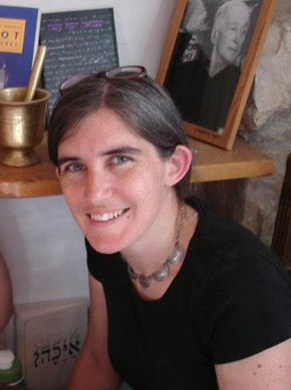As much as I love the Passover seder, it’s in the few days immediately afterward that I can more easily imagine the chaos of the Exodus from Egypt. Coming back from being with my family, unpacking and wondering what happened to half the things I brought with me, being unable to find anything in the newly-organized kitchen I left behind only a few days before.
But the real chaos is yet to come. On the 7th day of Passover, the Torah reading brings us back to one of the most terrifying moments of the story. The Israelites have arrived at the shore of the sea, and they look back to see Pharaoh and his army in pursuit. “Greatly frightened, the Israelites cried out to the Lord. And they said to Moses, ‘Was it for want of graves in Egypt that you brought us to die in the wilderness? What have you done to us, taking us out of Egypt?’” (14:10-11) This moment of having left behind one terrible situation only to be confronted with something as bad or worse is so terrible that the Israelites actually begin to wish they had never left.
While I was sitting down for seders with friends and family and trying to imagine this combination of fear and panic, Sudanese and Eritrean asylum-seekers in Israel were feeling this panic without the need for any imagination at all. They escaped from massacres, from forced military service, from slavery, from despair, and have been waiting for the Ministry of the Interior to seriously consider their claims for asylum status for years.
In the last few years, many asylum seekers have been imprisoned in the Saharonim or Holot prison facilities in the Negev. Others have been offered money to leave, and have been “voluntarily” deported back to Sudan or Eritrea, or to other countries in Africa. All reports on those who left have shown that the asylum seekers face imprisonment, torture, and even death if they return to their countries of origin.
Last week, the ministry sent out a letter to inform the asylum seekers that in the coming weeks, they would be given the option of being deported to an unnamed third country or being sent to Saharonim prison for three years. With the arrival of that letter, the entire community has been thrown into panic.
Fear is also driving the people in the Ministry of the Interior in their attempts to contain and expel asylum seekers. Israelis who see the arrival of thousands of non-Jews as a threat to their country are imagining themselves to be in the same situation as the ancient Israelites: at the edge of a sea, pursued by those who would harm them.
But the asylum seekers are harming no one. Despite claims that they have brought more crime to the neighborhoods where they live, official statistics have shown that the crime rate is lower among the asylum seeker community than among the general population. And the problems faced by the neighborhoods where they live are problems that existed long before they arrived.
The Israeli Supreme Court has ruled twice now that imprisoning asylum seekers for no reason is not acceptable in Israeli law. And yet the Ministry of the Interior is willing to spend millions of dollars to do so anyway, and millions more to send asylum seekers back to Africa. It would cost Israel significantly less – both in money and in good will – to assess asylum claims and help the 40,000 asylum seekers currently in Israel become self-supporting until the time comes that they can return home.
As the Israelites panic at the edge of the sea, Moses tries to give them hope. “Moses said to the people…‘The Lord will battle for you; you hold your peace!’ Then the Lord said to Moses, ‘Why do you cry out to Me? Tell the Israelites to go forward.’” (14:13-15)
Moses believes that he can pass the buck, but God puts the ball right back in his court. It is the job of the people and their leader to keep moving forward.
We in North America may think that we can or should pass the buck on this one, that it’s an internal Israeli matter. This Passover, God says no; we must go forward as a community, each of us taking the steps we can. Before this week is out, I’ll write again to invite you to take action on behalf of the asylum seekers in Israel, and ask the Interior Ministry to stop deporting and imprisoning people whose story is so much like the one we read at our seder tables.
As Senior Organizer, Marisa Elana James has primary responsibility for T’ruah’s work in Israel and the occupied Palestinian territories. She is in her second-to-last year of school at the Reconstructionist Rabbinical College in Philadelphia and lives in Washington Heights with her wife, Barbara.

